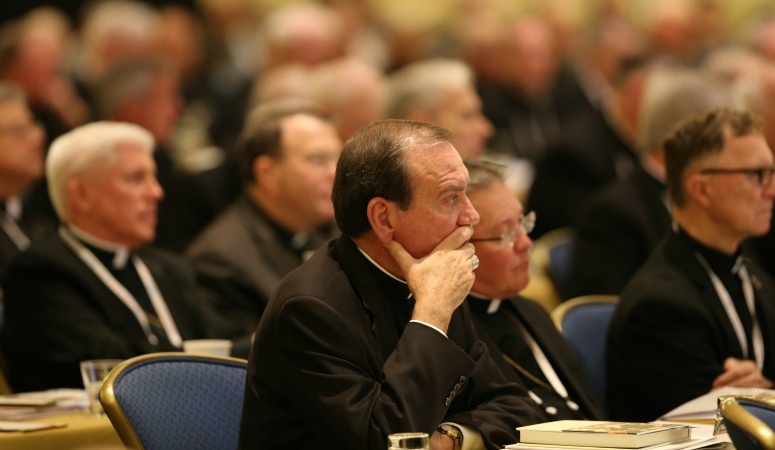Western bishops tending towards nasionalism
The Church’s role is also becoming critical again in two key countries in Europe, where upcoming elections are poised to shape the future of the continent.
Dec 02, 2016

By Massimo Faggioli
The Church’s role is also becoming critical again in two key countries in Europe, where upcoming elections are poised to shape the future of the continent. In France, recent presidential primaries featured two Catholic candidates of the centre-right — François Fillon and Alain Juppé — who showed divergent sensibilities toward multicultural issues and the views the French bishops have expressed on next spring’s general election.
In Germany, an intense debate is developing around the relationship between the Catholic Church and the neo-nationalist and anti-multicultural party AfD (Alternative für Deutschland, that is, Alternative for Germany). It was recently marked by a pointed exchange between Daniel Deckers of the establishment newspaper, Frankfurter Allgemeine Zeitung, and Andreas Püttmann of Katholisch.de, the voice of the German Catholic bishops’ conference.
Whatever the reasons that prompted Catholics to vote for the likes of Trump in the United States, Brexit in the United Kingdom, AfD in Germany and the Northern League in Italy, their embrace of such neo-nationalist agendas mark a radical turn against Catholic tradition.
The point is not a futile defense of capitalist globalisation per se, but the proposal of an alternative globalisation. However, not all the bishops are on the same page as Pope Francis and his views on the modern economy. This is particularly evident in the United States where the prelates are divided among themselves.
Catholic leaders have shown a cognitive dissonance between their deeply embedded system of relations with the capitalist status quo, on the one hand, and their advocacy of a more just system that should lead them to embrace the Pope’s social teaching, on the other hand. But, sadly, we saw that many of the American bishops seemed closer to Donald Trump’s views than the Pope’s.
The neo-nationalism embodied by Mr Trump is clearly predicated on xenophobia, conspiracy theories and the exploitation of the poor and the powerless at the service of the latest version of neo-liberalism. One can hope that the US Catholic bishops will pay attention to this. But the rest of the Catholic elites also have the responsibility to fight this neo-nationalist agenda.
Paradoxically, fifty years ago, Catholic theology was more global than it is today. Catholic theology in the Western world has become less Catholic, in the sense that it is less universal, less multilingual and less conversant in theological literature of other languages. Instead, it is more absorbed by cultural issues specific to one country and often unaware of what Catholicism is in another area of the world.
The best way for Catholic theology to contribute to the redefinition of globalisation is to keep hold of its catholicity in the sense of universality. One of the perverse effects of the post-Vatican II professionalisation of lay Catholic scholars is that many of today’s academic theologians have less time, less money and fewer opportunities to study and work abroad compared to their mentors or colleagues of just two or three decades ago.
Most of today’s theologians are no longer paid by a diocese or a religious order. Instead, they get teaching salaries from state colleges and universities where administrators with business-school backgrounds see the study of theology and religion as a costly burden. The situation is not very different in many Catholic colleges and universities.
The “technocratic paradigm”, which Pope Francis criticises in his encyclical Laudato Si’, has led to the “proletarianisation” and “precarisation” of theology; that is, it has significantly transformed many theologians into wage-labourers, leaving them with precarious job security. The good news is that Catholicism is the most ubiquitous and deeply rooted version of globalisation and multiculturalism in today’s world. The Catholic Church, because of its universality, is uniquely poised to embody an alternative form of globalisation. And that entails a special responsibility for its theologians, whose work could have global political consequences. --Commonweal







Total Comments:0